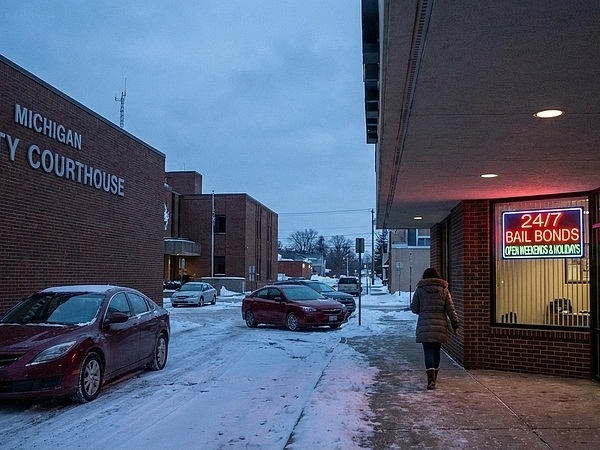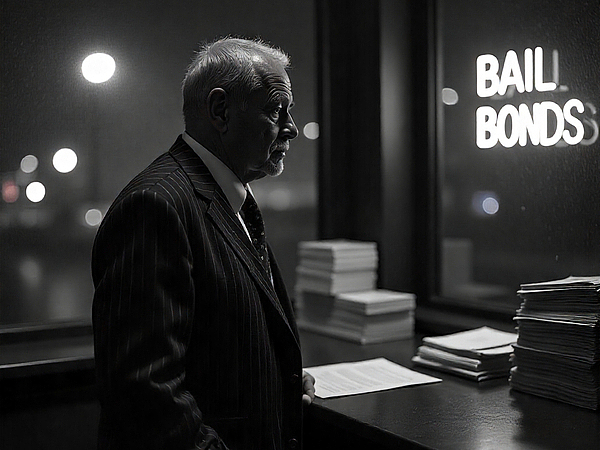Who Is Allowed to Post Bail in Michigan

Courts in Michigan don’t hand over bail to just anyone. They want to see who’s putting up the money, what the connection is, and if that person can be counted on. It’s not just about having cash. The right person with the right paperwork gets things moving. The wrong person or missing documents means delays and frustration.
Family Members Step Up First
Courts look for family first. Parents, siblings, spouses, and adult children walk in with ID and proof of relationship. They get attention. Judges and clerks see these faces every day. Family members don’t need to explain why they care. Their connection is obvious. A marriage certificate, birth certificate, or legal guardianship paper clears the way. Step-family members bring marriage records. Legal guardians show court orders. The process moves faster when the relationship is clear and the paperwork is ready.
- Parents, siblings, and adult children over 18
- Spouses and domestic partners
- Extended family with proof of relation
- Legal guardians with documentation
- Step-family members with marriage certificates
Family members usually face fewer questions. They’re seen as less likely to disappear or skip out on court dates. When a family member posts bail, the court expects them to keep tabs on the defendant. That’s why blood ties and legal relationships matter. When in doubt, courts check the paperwork. No proof, no bail.
Family members often work with Michigan bail bondsmen to cover large bail amounts. Bondsmen know the system. They ask for collateral, signatures, and clear proof of relationship. Family members who can’t show the right documents get turned away. No exceptions.
Friends and Non-Family Can Help
Not everyone has family nearby. Friends, employers, and community leaders step in. The court wants to know: who are you, and why are you helping? A valid Michigan ID is the first obstacle. Proof of residency comes next. The court checks addresses, phone numbers, and sometimes even employment records. No ID, no bail.
- Close friends with valid Michigan ID
- Employers vouching for employees
- Religious or community leaders
- Professional colleagues
- Registered non-profit organizations
Employers sometimes post bail for valued workers. They bring business cards, pay stubs, or letters on company letterhead. Community leaders, such as pastors, coaches, or non-profit directors, show up with organization documents. The court looks looks for real connections, not just a friendly face. Every detail gets checked. The process takes longer for non-family, but it’s possible.
When friends or colleagues step in, the court wants to know they’re not just a name on a form. They ask questions. They look for red flags. The risk is higher, so the scrutiny is tougher. That’s where surety bail bonds come in. We handle the paperwork, verify relationships, and make sure the court gets what it needs. We don’t cut corners. We don’t take chances.
Working with experienced bail bond agents makes the process smoother. Our professionals know what the court wants. They gather documents, check IDs, and walk non-family members through every step. No uncertainty. No wasted trips.
Documents That Open Doors
Paperwork makes or breaks a bail attempt. Walk in unprepared, and the process stalls. Bring the right documents, and things move quickly. Here’s what the court expects:
- Government-issued photo ID
- Proof of Michigan residence
- Income verification documents
- Property ownership papers (if using property as collateral)
- Bank statements or financial records
Photo ID proves identity. Utility bills, leases, or mortgage statements show Michigan residency. Pay stubs or tax returns confirm income. Property deeds or car titles back up collateral claims. Bank statements show the ability to pay. Every document gets checked. Missing paperwork means delays or outright rejection.
Preparation matters. Before heading to the courthouse or bondsman’s office, gather every document. Understand how bail bonds work and what’s expected. No one wants to stand in line twice because of a missing form.
Legal Barriers That Block Bail
Not everyone can post bail. Michigan law draws hard lines. Felony convictions, open warrants, or involvement in the defendant’s case shut the door. The court checks criminal records. Anyone with a history of skipping court or helping others avoid justice gets flagged. No exceptions. Even a close friend or family member can be turned away if their background raises concerns.
Sometimes, the person trying to post bail is part of the case. Maybe a co-defendant or a witness. The court won’t allow it. The risk is too high. The law is clear. Only those with clean records and no direct involvement can help. When in doubt, professional bail services step in. AAA Bail Bonds of Michigan knows the rules. We check backgrounds before anyone wastes time or money.
- Felony convictions or open warrants disqualify potential bail providers
- Direct involvement in the case blocks eligibility
- Courts verify every detail before approving bail
What Happens When Rules Aren’t Followed
Try to cut corners, and the system pushes back. False documents, hidden relationships, or incomplete forms lead to rejection. The court keeps records. Anyone caught lying faces penalties. Sometimes even criminal charges. Bail gets denied, and the defendant stays in jail. No one wants that outcome.
Even honest mistakes cause problems. A missing signature, an outdated address, or a typo on a form can stall the process for hours or days. The court doesn’t rush. They check every detail. That’s why working with professionals matters. They spot mistakes before they become roadblocks.
Get Professional Bail Bond Help Today
AAA Bail Bonds of Michigan stands ready to guide you through the bail process. Call us at 586-757-5001 or Schedule a Consultation to secure reliable bail bond assistance.
‹ Back






